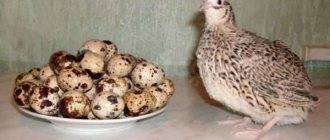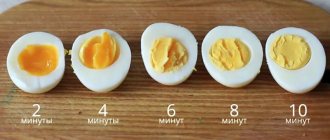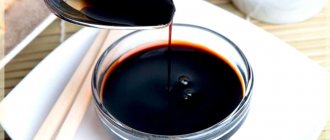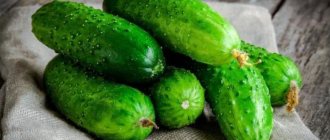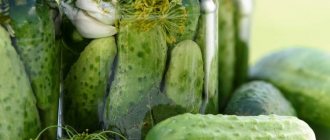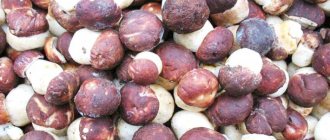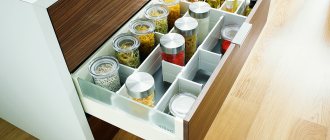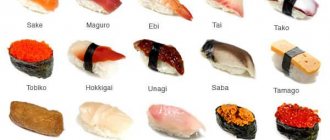Storing pickles at home
Preservation made in the summer can delight consumers for a long time.
This is interesting! A huge reward was promised by Napoleon to anyone who could come up with a way to keep cucumbers fresh during long campaigns, but no one was ever awarded such a reward.
The shelf life is directly affected by factors such as:
- use of clean, sterilized containers for rolling;
- the quality of the water on the basis of which the brine was prepared;
- selection of high-quality cucumbers and screening out spoiled, damaged or poorly washed vegetables;
- compliance with the recipe and cooking technology.
If all the above steps have been completed, then the preservation can be stored at room temperature in the apartment. If there are doubts about the quality of water, the processing of cucumbers, or one of the canning stages was violated, then it is better to place the pickles:
- in a cool place at home, without access to light. It is optimal if it is a pantry on a glazed balcony or a shelf in the refrigerator;
- in a private house, it is better to place such conservation in the basement, where there is cool air and no bright lighting.
If you are interested in the question of how long pickles can be stored after pickling, you can find information that this period depends on the method of storage and compliance with all the conditions stated below.
Features and shelf life of various types at home
It is permissible to keep blanks in different forms. This allows each person to choose the best option.
Canned in jars
Pickles that were preserved in the summer can only be stored unopened. Once the jars are opened, the shelf life of the product is significantly reduced. That’s why cucumbers are preserved in small quantities. This will make it possible to quickly eat the product.
The storage temperature should be -1 to +1 degrees. The higher the indicator, the faster the product will become unusable. If jars are kept warm, pathogenic microorganisms quickly multiply in them, causing the liquid to sour. As a result, it may begin to bloom.
See also
How long can raw eggs be stored in the refrigerator, methods and timing, how to extend
In an open jar, gherkins will become unusable in 2 weeks. And this will happen even in the refrigerator. This product will become too sour and soft.
Frozen
If the jar has been opened and the pickles have not been eaten, it is permissible to put them in the freezer. This will help extend the storage period. To allow the fruits to dry, place them on a paper towel. Then put the product in a bag and put it in the freezer.
After defrosting, cucumbers should not be eaten raw. They are used for various dishes. The product is often added to soups or pizza.
In barrels
It is recommended to keep barrel cucumbers in brine. It is obtained due to fermentation. Air parameters should be 0…+1 degrees. It is quite difficult to create such conditions in an ordinary apartment. It is permissible to keep barrel cucumbers at room temperature only for a short time.
Subsequently, fermentation continues. As a result, bacteria lead to changes in the composition of the brine, which leads to spoilage of cucumbers. At the same time, they change the taste and acquire a softer consistency. The product develops a sharp and unpleasant aroma and a slimy coating appears. In the case of industrial storage, barrels are placed in special refrigerated compartments. They are folded horizontally or vertically. In this case, the tongue and groove hole must be directed upward.
Lightly salted
This type of pickling is mainly used in summer. Pickling of fresh vegetables is carried out at a fast pace. Depending on the timing, lightly salted cucumbers differ from ordinary pickles. Shelf life depends on the recipe. It is usually recommended to keep lightly salted cucumbers in jars.
They are moved to a cool place. Otherwise, the product will quickly become salty.
To avoid this, you can follow these recommendations:
- To stop salting, the product is moved to a cool place. It is recommended to keep the workpiece in the cellar. If this is not possible, it is permissible to use a refrigerator.
- The temperature of the water used for salting is important. If hot liquid is used, salting will be faster. Such vegetables cannot be stored for a long time. It is better to use cold water. This helps increase the shelf life of the product.
- For long-term storage of cucumbers, cutting off their ends is not recommended. Otherwise, salting occurs faster, which reduces the storage period.
- To ensure even pickling of cucumbers, it is recommended to select them according to variety and size. Gherkins are salted faster and become over-salted in a short time. It is better to use the same vegetables.
- It is permissible to pickle cucumbers without brine. To do this, you need to put fruits of the same size in the bag, then add salt. The resulting package is placed on the top shelf of the refrigerator.
See also
How to store butter correctly and for how long in the refrigerator and freezer
Pickled
During the preservation process, vinegar and other preservatives are added to the marinade. This helps to increase the shelf life of the product and eliminates the need to strictly observe the temperature regime. This preparation can be kept in an apartment or in a cool cellar. In any case, the following conditions must be observed:
- do not store the product near heat sources;
- do not expose glass jars to frost;
- Avoid exposure to ultraviolet light on the product.
In an apartment, you should choose dark places for conservation. This could be a kitchen cabinet or pantry.
Key rules
Cucumbers are called lightly salted because during their preparation they use less preservative than with regular pickling. This point helps preserve the beneficial properties of the product, but has a significant impact on their shelf life.
The salting process does not take much time and if you leave the product at room temperature, it will absorb all the excess salt or sour. You can extend the period of preservation of the original qualities by observing the following rules:
- Place the products in a cool place. This condition must be observed, because when kept warm, the fermentation process accelerates. You can simply put the bottle or container with the product in the refrigerator.
- To stop further salting, the cucumbers are pulled out of the brine. They can be moved to an airtight box or placed in a plastic bag. The packaging used should not contain air, then the product will remain lightly salted for several weeks, but it may dry out.
The effectiveness of such methods can be called relative, therefore the optimal solution is to prepare the product in a small volume, taking into account shelf life. You need to understand that a cucumber becomes lightly salted 3-4 days after it is filled with brine, and then it needs to be put in the refrigerator. So it will retain its properties for 1 week, and then it will begin to deteriorate.
With vodka
Pickles with vodka do not require lengthy preparation and sterilization of vegetables. Place washed and dried horseradish and currant leaves, an umbrella of dill, a sprig of celery, garlic and a few peppercorns into sterilized jars.
Cucumbers with vodka - a very tasty recipe
Cucumbers soaked in cold water are laid out on the spices. 3 tbsp are poured into the container. spoons of salt and 50 g of vodka, everything is filled to the very top with purified water, closed with a nylon lid and put away in a dark, cool place.
Note! After 3-4 days, the greens are ready to eat. The snack is stored in a cool place.
Safety of various workpieces
Jars of pickled cucumbers last 2 years in cellars, a little less in apartments.
Canned twists are stored in apartments for about 3 years.
Pickled cucumbers require certain indicators: temperature and humidity, so that the brine does not turn sour. Usually such pickles are rolled into 1 liter. jars.
Methods and options for storing various preparations
There are a large number of options for storing cucumbers for the winter, most of them are presented below.
Pickles
Pickled cucumbers can be kept in the cellar for no more than 2 years, but in an apartment the period is reduced. The main thing is to thoroughly sterilize the jars, lids and seal the preparation hermetically for the winter.
Canned in a jar
This twist should be stored indoors for no more than 3 years, if all standards are followed. A cool, dry pantry is ideal for this.
Pickles
When using this method of storing cucumbers, monitor the temperature and humidity in the room so that the brine does not sour.
Important! To prevent pickles from spoiling quickly after opening, it is more convenient to roll them in liter jars .
Lightly salted
The workpiece is not stored for long and does not require strict adherence to all conditions. In an apartment where the temperature is high, the cucumbers will be pickled quickly, after which they should be moved to the refrigerator.
Where and how to store homemade preparations
You can store twists for the winter in a variety of places, the main thing is to comply with the conditions and create optimal temperature and humidity levels.
Cellar
If there is an opportunity to store blanks in the cellar, you should not miss it, since this is the most optimal place . If all important indicators are properly organized, you can leave jars of snacks there for a long time.
For further safety, the workpieces need to be provided with good ventilation and the premises insulated to eliminate the possibility of sudden freezing. Also, regularly, for preventive purposes, treat walls and shelves with antifungal agents so that microorganisms do not penetrate inside jars with nylon lids.
Apartment
Storing canned cucumbers in an apartment is made easier by the presence of a balcony, loggia or pantry, since in a heated room it is difficult to arrange the jars so that the snack does not spoil .
Otherwise, you can get a miniature pantry in the kitchen, placing it under the windowsill . Any kitchen cabinet into which light will not penetrate will also work.
When choosing a place to mount it, you should give preference to those where there are no heating devices nearby.
If the apartment has high humidity , place the blanks not in the kitchen, but in the bedroom under the bed to protect the covers from corrosion.
Balcony
The presence of a balcony in the apartment simplifies the storage of preparations for the winter . Even if you have a small area, if properly equipped, it will be the perfect place to store snacks. To do this, you should get a closed shelving unit to prevent sunlight from entering, and a heating device to regulate the room temperature in winter.
Important! It is necessary to increase the ventilation time of the room if there is high humidity on the balcony and laundry is often dried.
What conditions are necessary for long-term storage?
As you know, any type of homemade food for the winter requires compliance with certain conditions for its further storage.
Temperature and humidity
The optimal humidity in the room where workpieces are kept for a long time should not exceed 75%. In apartment conditions, it is difficult to regulate the room temperature; you should also focus on the method of twisting. Products in sealed packaging can be stored at a temperature of no more than 20 degrees, but for pickled, pickled or pickled cucumbers it should vary from 0 to 4.
Sub-zero temperatures can lead to irreversible consequences in the form of cracks.
Illumination
The main rule for storing twists is minimum lighting. It is worth protecting the jars from direct sunlight, the impact of which can negatively affect the quality of the snack.
Pickled cucumbers with vodka
This recipe for pickled cucumbers for the winter with vodka will appeal to lovers of piquant taste.
Ingredients
- Cucumbers (how many will fit in a 3-liter jar)
- Water – 1.5 l
- Vodka – 100 ml
- Sugar - 3 tbsp. l.
- Salt - 2 tbsp. l.
- Garlic - 2 cloves.
- Bay leaf - 3 pcs.
- Dill – 1-2 umbrellas or stems.
- Horseradish leaves – 7-8 pcs.
Cooking method
- Wash the cucumbers thoroughly and leave them in cold water overnight. Next, cut off their ends a little.
- Place spices and garlic at the bottom of a clean jar. Pack the cucumbers tightly.
- We dilute salt and sugar in cold water, pour in the cucumbers, and then pour in vodka.
- Cover the jar with gauze or a lid with holes and leave it in the room for 3-4 days. The foam must be removed constantly.
- On the 4th day, drain the brine, boil it for 3-4 minutes, pour it back into the jars and roll it up.
All of these recipes have been tested many times. Pickled cucumbers turn out very tasty and crispy!
How to store pickles without brine and after opening the jar, for how long can they be stored?
Pickled cucumbers have a piquant taste and a pleasant aroma of spices and herbs. To increase the shelf life of the product, it is important to follow certain rules for storing winter preparations. Not only a basement or cellar in a country house is suitable as a place, but also a refrigerator or a balcony in an apartment building.
How to store pickles
Vegetables rolled up in glass jars are stored for 8-9 months at:
- temperature -1…+4°С;
- air humidity 80–90%.
At a dacha or in a private house, it is much easier to comply with these conditions, since it is easy to find a cold place with optimal humidity.
It is important for residents of an apartment building to take into account a number of rules:
- The workpieces are kept at a suitable temperature. Barrel cucumbers are stored at 0…+1°C; pickled, salted and soaked - at 0...+4°C. This condition is sufficient if sterile containers, lids, filtered water and fresh fruits without rot were used for rolling.
- If the quality of the product is in doubt, the containers are placed in a cool, dark place (refrigerator or on the balcony), not allowing bright light to penetrate.
How to fry pistachios
Pistachios are delicious nuts that differ from other nuts in lower calorie content and have a fairly rich vitamin composition. These nuts have a tonic effect and help with chronic fatigue and depression. They are also called “funny nuts” because of the effect they have and the cracked, smile-shaped shell.
Iranian pistachios are considered the most delicious. They are sprinkled on ice cream, added to baked goods, cocktails, meat and fish dishes, and salads. In the East, pistachios are used to make baklava, Turkish delight and other national sweets.
Nowadays pistachios can be bought at any store, but since all nuts contain a large amount of oil and quickly become rancid, it is best to stock up on fresh pistachios, which can be dried or fried if desired. Fresh pistachios are soft and have a milky taste. We are more accustomed to eating them cooked. In addition, fresh nuts do not last long, and after drying in the sun they can be stored for almost a year. Few people know how to properly fry pistachios.
To properly fry pistachios, according to some recipes, you must first soak them in salt water. This is for those who like their nuts soaked through with salt. A simpler process sequence looks like this:
Raw pistachios must first be peeled and peeled, then boiled for five minutes. Then drain the pistachios in a colander and let them dry thoroughly.
Place the peeled, boiled and dried nuts on a baking sheet in an even layer. Preheat the oven to one hundred and eighty degrees and place a baking sheet with pistachios there. Fry for about five minutes, then sprinkle with spices and salt. You can do without spices altogether. You can eat pistachios after they have cooled completely, during which time they will have time to absorb salt.
Frying pistachios at home is easy; if you wish, you can do it not in the oven, but using a cast-iron frying pan. Pistachios, as already mentioned, can be pre-soaked and dried, or boiled. The prepared nuts are poured into a frying pan, greased with oil and fried until golden brown, with constant stirring, then seasoned with salt.
We recommend reading: Will gladiolus bloom in a vase?
Frying pistachios in a frying pan is especially popular, as this method gives them a more pronounced taste. In addition, you can control the degree of “toasting”. If there is too much oil, place the nuts on a paper towel after frying. which will absorb excess fat.
Raw pistachios must first be peeled and peeled, then boiled for five minutes. Then drain the pistachios in a colander and let them dry thoroughly.
Best before date
The shelf life of cucumbers depends on many factors , such as the method of twisting and the conditions in the storage room. It is also worth paying attention to how long you can store a sealed jar and an already opened one, since the period is significantly different.
Before opening the container
You should try to use up cucumbers that have been sealed for the winter in various ways within 1 year . But if you leave the jars for the second year, they will not differ in taste, but before use you should check for the absence of fungi and infections.
After opening the container
An open jar is susceptible to infection with fungal diseases, so keeping the product in the refrigerator for a long time is not recommended. Approximate shelf life is 2 weeks. Next, you should visually check the preservative for the presence of cloudiness and mold.
Storing pickled cucumbers frozen
If, after opening the jar, you no longer want to eat pickles, but it’s a pity to throw them away, you can freeze the vegetables, thereby increasing their shelf life. To do this, remove all the vegetables from the jar, rinse them and dry them on a towel. After drying, place the cucumbers in a food bag and place in the freezer.
After freezing, cucumbers can only be used for cooking dishes that require heat treatment.
Storing pickled cucumbers frozen
If, after opening the jar, you no longer want to eat pickles, but it’s a pity to throw them away, you can freeze the vegetables, thereby increasing their shelf life. To do this, remove all the vegetables from the jar, rinse them and dry them on a towel. After drying, place the cucumbers in a food bag and place in the freezer.
After freezing, cucumbers can only be used for cooking dishes that require heat treatment.
Features of storing cucumbers
The taste qualities of pickles, as well as their shelf life, also depend on the method of their storage, among which the most popular are storage:
- in banks;
- in barrels;
- frozen.
However, each of these storage methods has its own characteristics, which will be discussed in more detail separately.
In banks
Everyone is familiar with this storage method, since it is the most accessible and proven.
Important! To prevent pickles from spoiling after opening the jar, you should preserve them in small portions in 1-2 liter jars.
Recipes for industrial preservation in jars, as well as home recipes from experienced housewives, can have a lot of differences and variations, but storing pickles this way has general rules:
- preservation can be stored for a long time if the jar is well sealed;
- after opening the jar and breaking the sealed conditions, the sales period for pickled cucumbers is significantly reduced;
- the air temperature should be as low as possible, and the room humidity should be high. Violation of these indicators can cause flowering in the brine and its souring.
In barrels
Barrel cucumbers must be kept in brine obtained as a result of natural fermentation, in barrels with optimal air conditions from 0...+1°C, which is quite difficult to achieve in an apartment building.
Storage of barrel pickles is possible for a short time, since the fermentation process continues to occur and bacteria change the composition of the brine over time and the cucumbers in it begin to deteriorate:
- become softer;
- taste changes;
- the smell becomes more pungent and unpleasant;
- cucumbers become covered with mucus.
During industrial storage in warehouses, barrels are sent to special, refrigerated compartments. There they are folded either horizontally or vertically, but in compliance with the mandatory condition - with the tongue hole facing up.
Frozen
The question of whether it is possible to freeze pickles, as well as many other fresh vegetables, probably interested thrifty housewives after opening a jar of canned pickles.
Important! After defrosting, pickles can only be used in dishes that require heat treatment of this ingredient.
It is indeed possible to store salted vegetables in the freezer, but you should know the technology for implementing this process:
- Cucumbers are removed from the brine.
- Dry and put in a durable plastic bag.
- Sent to the fast freezing department.
- Transfer to the main freezer for long-term storage.
How long can pickles be stored in the refrigerator?
A sign of spoilage of pickles is cloudiness of the brine or swelling of the lid.
- Pickles and marinades 2 months after opening the jar
- To prevent the product from spoiling for as long as possible after opening the jar, you should not remove anything from it with dirty hands. Opened jars of pickles can be stored in the refrigerator for no more than two weeks. Lightly salted cucumbers can be stored in the refrigerator for a month if black peppercorns were used in preparation.
- In short, any opened product can be stored for a maximum of 2 days. Every refrigerator contains bacteria, viruses and protozoa. At +5C they multiply and are transferred.
Opened pickles can be stored in the refrigerator for months if intermediate sterilizations are carried out.
2 months is realistic.
But such a bank needs to be watched.
- Do not poke into it with a dirty fork.
- Do not leave open on the table for a long time in a warm place. We throw away all the grass, especially umbrellas.
- Loyal only to hard cloves of garlic. We eat questionable vegetables first.
As soon as the brine begins to become cloudy, we perform preventive measures:
- 1. Sterilize a new, smaller jar. First, I burn the inside for a couple of minutes with a technical hair dryer along with a new lid. Then it is steamed in the microwave for a couple more minutes. Water vapor removes the specific smell from the hair dryer.
- 2. At this time, the wife drains the brine from the jar through a sieve into a saucepan and boils for a couple of minutes.
- 3. The old jar of vegetables without brine is returned to the refrigerator.
- 4. After a couple of hours, when the new jar and brine have cooled down, we put them in the refrigerator under a new lid.
- 5. For tomorrow, vegetables are immersed in sterilized brine in a new jar.
The life of pickles is extended by at least a month. The cycle can be repeated several times until it is completely eaten. Thus, the final shelf life can be much more than two months.
Features of storing pickles at home
The method of heat treatment significantly affects the storage time and conditions of pickles.
In banks
The optimal temperature for such containers is -1...+1°С . It is not advisable to place pickles on the balcony, otherwise during frosts the vegetables will quickly freeze and spoil. It is better to place the jars near a window or on a windowsill: due to a draft, the temperature will be lower than room temperature, which will increase the shelf life.
When salting, use containers with a volume of 1-2 liters and gherkins of the same size. After opening the jar, the cucumbers are consumed within 3 days so that the brine does not bloom and the fruits themselves do not swell.
In barrels
Since storing vegetables in barrels is difficult due to the large size of the container, they are transferred to a plastic bucket and placed in the refrigerator on the bottom shelf. The optimal temperature is 0…+1°C. Constantly monitor the condition of the brine so that it does not quickly deteriorate .
Attention! Barrel cucumbers must be covered with a lid to prevent weathering. Before use, vegetables are washed with running water.
When transferring pickled vegetables from a barrel to a bucket, mustard and other spices are evenly distributed along the bottom and added on top of each layer. This not only improves the taste of the fruit, but also prevents mold from forming on the surface of the brine. If fungi are removed in time, the shelf life of barrel cucumbers reaches 1 year.
Frozen
Fresh cucumbers are not specially processed before freezing. This method is suitable if opened pickles have been in the refrigerator for too long and you need to extend their shelf life. The step-by-step algorithm is as follows:
- Slice the pickles.
- Place them on a towel and dry.
- Place in a strong food bag and place in the freezer.
Frozen snacks can be stored for 1–1.5 years.
Reference. After defrosting, vegetables are not eaten in their pure form. They are pre-fried and added to any dish - pizza, pickle soup, etc.
Lightly salted
Such cucumbers undergo accelerated pickling, so they also do not last long. To increase shelf life, it is important :
- Select large fruits - they will not spoil within 1–1.5 weeks (compared to gherkins, which become unusable after 2 days).
- Make the brine from cold water rather than hot water, which reduces the pickling time.
- Keep cucumbers in the refrigerator most of the day, or better yet, in the cellar.
- Leave the ends of the vegetables, do not trim them.
- Choose recipes with less liquid or no liquid at all. For example, there is an option for preparing lightly salted cucumbers in a bag, when the vegetables and salt are placed in a durable plastic bag and placed on the top shelf of the refrigerator for 1-3 days.
How to store pickles
Vegetables rolled up in glass jars are stored for 8-9 months at:
- temperature -1…+4°С;
- air humidity 80–90%.
At a dacha or in a private house, it is much easier to comply with these conditions, since it is easy to find a cold place with optimal humidity.
It is important for residents of an apartment building to take into account a number of rules:
- The workpieces are kept at a suitable temperature. Barrel cucumbers are stored at 0…+1°C; pickled, salted and soaked - at 0...+4°C. This condition is sufficient if sterile containers, lids, filtered water and fresh fruits without rot were used for rolling.
- If the quality of the product is in doubt, the containers are placed in a cool, dark place (refrigerator or on the balcony), not allowing bright light to penetrate.
Crispy, cold-process pickles. Recipe for a 3 liter jar
One of the most popular and simplest options for winter preparations. For some, it may be a revelation to see an oak leaf in the ingredients. It gives a special aroma. Give it a try.
Ingredients:
- Cucumbers – 20 pcs.
- Garlic-3 cloves
- Oak leaf – 5-6 leaves
- Currant leaves - 5-6 leaves
- Cherry leaves -5-6 leaves
- Horseradish – 4 horseradish leaves
- Dill – 4 umbrellas
- Bay leaf – 2 pcs
- Black peppercorns – 6 pcs.
- Salt – 3 tbsp. for a 3 liter jar
Cooking method:
1. Place oak, currant, cherry and bay leaves alternately on the bottom of a clean and dry jar. Next place the dill umbrellas.
2. Peel the garlic and cut the cloves in half, place in a jar. Then peppercorns and two leaves of horseradish.
3. Then place the washed cucumbers very tightly, in a vertical position. In the remaining space at the top, lay them horizontally so that they are as close to each other as possible.
4. Pour salt into a half-liter jar and fill it partially with water. Mix the salt and pour the solution into a jar of cucumbers. Then add regular clean cold water almost to the top. Don't leave much space.
5. Place the remaining two horseradish leaves tightly on the very top and add water to cover the leaves.
Horseradish leaves are covered on top to prevent mold from forming later.
6. Then place the jar on a plate, cover the top with a lid and leave for about three days. During this time, the fermentation process will take place and some of the water will flow out.
7. After three days, add salted water, close the lid tightly and store in a cool, dark place. Cucumbers pickled in this way turn out crispy and very tasty.
Rules for storing pickled cucumbers
The shelf life of a product largely depends on the container. Thus, cucumbers in a plastic container are suitable for consumption for 4–6 months, in a glass container for 6–8 months. Let's consider each method in detail.
In plastic jars
After the brine stops fermenting, the plastic dishes with vegetables are placed in a cool room.
Attention! Do not allow sunlight to reach the container.
Keep the workpieces at a temperature no higher than +5°C (preferably in a cellar, dry basement).
In glass jars
In addition to standard storage rules, additional recommendations are observed:
- cucumbers pickled in a jar without heat treatment are stored for up to 1 week at a temperature not exceeding +17°C;
- It is better to roll up pickles in small containers - small portions are eaten faster and are more convenient to store;
- if the room temperature exceeds +10°C, the product is used within 2 days.
How long can cucumbers be stored before pickling?
The shelf life of vegetables before heat treatment is no more than 1 week at a room temperature not higher than +17°C and in the absence of direct sunlight.
Fresh cucumbers are not washed before pickling , so as not to spoil the harvest.
Take note:
Recipes for crispy pickled cucumbers with lemon
The best recipes for preparing sweet and sour cucumbers
How to store canned cucumbers after opening
The shelf life of home-canned cucumbers after the seal of the jar is broken depends on the storage location:
- at room temperature – 2-3 days;
- in the refrigerator - about 1 month;
- on the balcony - 2 weeks - 1 month.
If you leave an opened jar at room temperature, the product inside will begin to deteriorate after a few days. Even when stored in the refrigerator, cucumbers can become acidic; to prevent this from happening, it is recommended to keep them without brine, transferring them to a container.
How long can lightly salted cucumbers be stored without brine?
There are special techniques that allow you to prepare lightly salted cucumbers immediately without brine. To ensure the process, they do not use glass jars, but plastic bags. Before pickling, cut off the ends of the cucumbers and pierce them with a toothpick in several places. The recipe is very simple.
Spices are added immediately to the bag at the rate of 1 tablespoon of table salt per 1 kg of vegetables. Sometimes lemon juice or its slices are added (it allows you to extend the shelf life). The bag is left for 5 hours at room temperature and then put in the refrigerator. The product will be ready for use in a day.
Cucumbers pickled using the usual method using brine can also be stored in bags. They are packaged after complete readiness. This allows you to extend their shelf life.
How to store lightly salted cucumbers
It has accelerated pickling, so it can stand only from 1 week to 1.5 if the cucumbers are large. The gherkins should be eaten within 2 days. The brine requires cold water. Store the pickling in cellars or refrigerators.
There is no need to cut off the ends of the cucumbers. It is better to prepare this pickling in disposable bags and store for 1 to 3 days on the refrigerator shelf.
To increase the period, you need to prepare a mixture with 1 glass of hot water, 1 tbsp. l. salt, mix everything. Add 1 tsp. ketchup or tomato paste, 0.5 tsp. paprika and 5 cloves of garlic, it must be chopped. Stir everything until smooth and pour into the brine.
Pickled cucumbers in jars - shelf life of closed and after opening
Cucumbers prepared with vinegar, both unopened and after opening the container, must be stored in compliance with the following important conditions:
- The storage container should not be exposed to light.
- Do not leave the workpiece with a heat source for a long time.
- Avoid storing glass containers in the cold - they may burst. In addition, with severe hypothermia, cucumbers can lose their crispy texture and soften.
You can store cucumbers prepared for the winter at room temperature. A pantry or kitchen cabinet is recommended as storage space.
Opened pickled cucumbers are best stored in the refrigerator. Many young housewives are interested in the question: how long can pickled cucumbers be stored in a closed jar? Within 12 months. If a jar with an open product is kept in the cold, then the shelf life is the same. Just enough until the next harvest.
How long can lightly salted cucumbers be stored?
The shelf life of a product largely depends on the conditions created for it and the preparation methods used:
- If the cucumbers were not treated with hot water, the cold pickling method was used, they will retain their properties for 5 days when stored at temperatures up to +15 degrees.
- If you place a bottle of pickled cucumbers in the refrigerator, the shelf life can be extended to 7-10 days.
- If you drain the brine and put the product in an airtight box or plastic bag, its shelf life will be extended to 2 weeks. In this case, you need to ensure a temperature of about 0 degrees. It must be taken into account that these cucumbers will be inferior in quality to freshly salted ones; they will lose their elasticity and become more sluggish.
Attention! It is not recommended to freeze lightly salted cucumbers. After defrosting, they will lose not only their structure, becoming more watery and loose, but also their taste.
How to preserve pickles bought at the market
The market usually sells vegetables sealed in glass jars. They are kept at home, maintaining optimal temperature (-1...+4°C) and air humidity (80–90%). When purchasing, it is better to ask how long to store the workpiece and when it was made.
Attention! When buying goods from random sellers at the market, remember the risk of poisoning. There is no guarantee of obtaining reliable information regarding production time and quality of the product.
Depending on the type of container, products are stored as follows:
- in plastic bags - no more than 24 hours at temperatures up to +17°C;
- Transfer the vegetables from a plastic bucket into a glass container and fill them with boiled water, keep them in this state for 2 days.
It is better to eat cucumbers by weight without brine immediately or freeze them after removing excess moisture.
